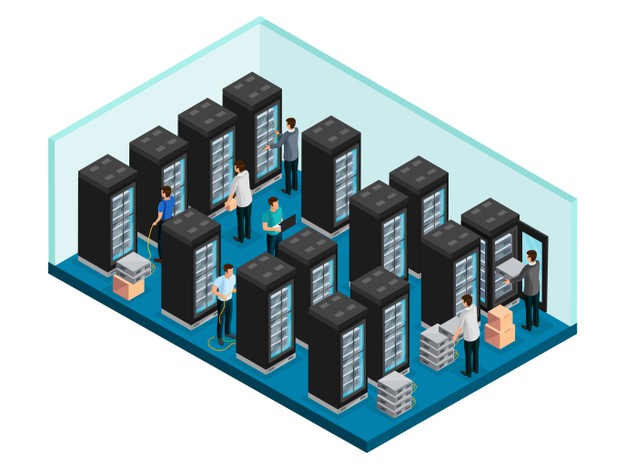Since many businesses are adopting developments in technology, we’ve seen a spike in the number of companies and organizations that need IT relocation services. Embracing technological innovations and streamlining IT infrastructure go hand-in-hand because you cannot facilitate a proper IT upgrade without the appropriate hardware.
Even if you’re not incorporating major technological changes at the moment; your IT environment’s operational lifespan is one that keeps evolving. You’re bound to need a data center migration at some point.
How do you get your data from point A to point B without losing, or interfering with anything? This is the question that it all boils down to.
You need an IT organization that has the technical know-how to not only secure your data but also help you increase operational efficiency. Embracing new technologies is supposed to make your business more competitive and highly available.
What are the Challenges you’re Likely to Face?
Since this is a huge undertaking, you should be aware of all the challenges you will encounter. These hurdles will pose a difficulty if you don’t carefully plan for this transition.
Moving Workloads
Different workloads require different deployment procedures. Some workloads will be best handled with a hybrid IT approach, some work best in the cloud, while others should only be on-premise moves.
Migrating Applications
You need to have a clear understanding of the applications you’re moving to. This will help you know which applications depend on others and how to ensure this is not interfered with. You need a catalog of all applications and the risks involved in relocating them.
Migrating Data and Machines
Don’t forget to monitor, support, and manage all your data during the relocation. You will need reliable IT Relocation Services to ensure everything is in order before, during, and after the move.
What are the Best Practices for Data Center Relocation?
The next question to ask yourself is the best practices you should use for successful data center relocation. This is an overwhelming project, so it’s best to use a tried and tested procedure.
Regardless of the reason behind your data move, the right strategy and proper implementation will ensure you reduce your downtime as much as possible. IT teams come in handy because they know what they’re dealing with and how each application should be handled.
For a smooth migration, each step should be geared towards avoiding possible hurdles and proceeding with caution.
Here is a four-point checklist to help you ensure nothing goes a miss;
Identify migration scope
What will you be moving to? This is a crucial starting point because it identifies what is in your current IT environment. Before you begin the move, ensure you have an updated checklist of everything that needs to be moved. This will give you an easy time tracking items throughout the relocation process.
Assess platform stability
How old is your equipment? Is it likely to malfunction in transport? The health and stability of your platform determine the best way to transport the equipment.
Define criticality of data
Make sure you’re aware of all the data assets in your possession. The last thing you want to happen is to misplace pieces of data during the move.
Know your network
An in-depth understanding of your network will save you from confusion on the D-day. Even if you want to seek IT relocation services, you must first map out your network.
How can you speed up the entire process?
Understand that there will be downtime to be caused by migration
Before you start the relocation process, understand that your business will suffer significant downtime. Have an accurate estimation of downtime and find ways to minimize it as much as possible. The method you choose for the migration should allow you to set up the new data center in the shortest time possible, without interfering with anything.
Establish how best to Accomplish your Move
Once you know how much downtime to expect, the next step is to formulate a relocation methodology. Will you adopt a forklift process where one item will be moved at a time, or do you prefer swing migration that requires utmost uptime?
The volumes of data you have and the platforms they’re on will be huge determining factors here.
Consider a partner
Lastly, consider hiring an IT relocation partner to help you with the move. If your company doesn’t have an adequate internal resource for the relocation, this is the best option. Executing a successful data center relocation needs professional expertise you can get when you hire IT relocation services.
Choosing a third-party relocation partner takes the pressure off you and your team. The process will be much easier when you’re getting help from experts.
Conclusion
As an enterprise that needs IT asset relocation, you need to hire specialists with the right strategy to mitigate all risks involved. The consolidation of data centers is a sensitive undertaking that can easily go wrong. A professional will know how to prevent any disruptions before they even happen. Before you start the migration, ensure you understand your network and every application therein to avoid confusion during the relocation.
Read Also:






















